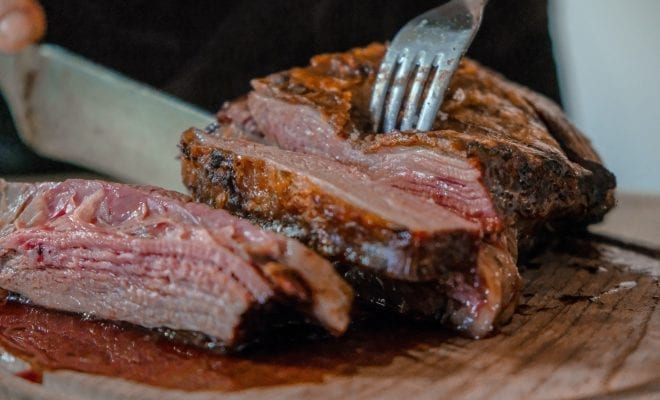
Lifestyle
What You Need to Know About the Carnivore Diet
We’ve seen some pretty crazy diets through the years, but the carnivore diet is among the strangest. As you’d expect from the name, the diet consists entirely of meat and animal products, completely excluding all other foods. Proponents of the diet say it can aid in weight loss, mood issues, and blood sugar regulation among other health-related benefits.
The carnivore diet is an elimination diet that is one of the most restrictive nutrition plans out there. The foods allowed are only meat, fish, and other animal foods like eggs and certain dairy products. This means that every single food not falling under these characteristics are excluded, meaning all fruits, vegetables, and grains are out of the question. The diet draws inspiration from the belief that the modern high-carb and refined sugar diet is responsible for the majority of chronic disease and inflammation.

Following the carnivore diet is relatively straightforward, with followers recommending that a diet should include beef, chicken, pork, lamb, turkey, organ meats, salmon, sardines, white fish, and small amounts of heavy cream and hard cheese. Butter, lard, and bone marrow are also allowed. There are no specific guidelines regarding total caloric intake or how many meals to eat per day, but it is recommended that meals should include fatty cuts of meat in order to maintain daily energy needs.
Many people turn to the carnivore diet as it has been reported to be highly effective for weight loss. Studies have shown that a diet rich in protein and low in carbs can help promote weight loss. A high-protein diet can leave you feeling fuller after meals, leading to reduced caloric intake. Protein can also lead to an increased metabolic rate helping your body burn more calories.
With the complete elimination of carbs and refined sugars, which are high in calories but essentially nutritionally baseless. These foods can prove to be detrimental to people who struggle with diabetes, weight, and inflammatory issues.

Nevertheless, the carnivore diet is not without its risks. The diet is especially high in fat, cholesterol, and sodium, all of which can contribute to an increased risk of heart disease, high blood pressure, kidney disease, and other problems. The diet is also one of the most restrictive out there, meaning your body will not receive micronutrients, beneficial plant compounds, and fiber easily obtained in normal balanced diets.
While the carnivore diet has plenty of anecdotal reports of users hailing it as the superior diet for weight loss, the sheer restrictive nature of it leaves much to be desired. There has been little to no clinical research into the long-term effects of following the diet, so anyone thinking about trying it out should proceed with caution.





3 Comments